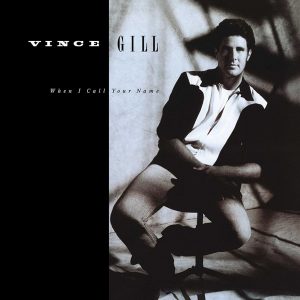Few American rock’n’roll bands have married the earthy and the theatrical with as much success as Styx. Their best songs are an exhilarating mix of hard rock muscle, progressive rock ambition, pop songcraft, and Broadway dazzle. During the halcyon years of the late 70s and early 80s, a golden halo seemed to encircle them – other bands did the things they did, but only Styx could do them all at the same time.
Their journey began in the Chicago suburbs in the early 60s, though things didn’t start rolling until they changed their name from TW4 to Styx at the start of the following decade. Even then, it took four albums to find both their sound and an audience. But when Styx hit, they hit big – starting with 1975’s Equinox, the band released a string of albums and singles that elevated them to the A-list, playing out across sports arenas and high school proms alike.
Listen to the best Styx songs on Apple Music or Spotify.
It helped that they had three stellar songwriters, each with their own recognizable identity and voice. Keyboard player and vocalist Dennis DeYoung was the master of the dramatic flourish, an old-fashioned song-and-dance man trapped in a rocker’s body. Guitarist/co-vocalist James “JY” Young provided the brawn and the ballast, anchoring Styx in the bar-rooms where they earned their spurs. Fellow guitarist/singer Tommy Shaw – who replaced original six-stringer John Curulewski in 1976 – brought twin shots of melodic muscle and musical adventurousness.
Yet the alchemical magic that fuelled their success also proved to be their undoing. The drama in their music bled out into real life, and by 1983’s Kilroy Was Here, Styx fractured and fell apart soon after. Subsequent decades have been punctuated by a series of reunions and albums. Today, Styx are active once more, with James Young and Tommy Shaw still holding the tiller. The 2021 album Crash Of The Crown draws a direct line back to their glory days, progressive inclinations and all. Styx’s golden halo still shines brightly after all these years.
The Rock’N’Roll Anthems
(Lorelei, Renegade, Blue Collar Man (Long Nights), Too Much Time On My Hands)
You can take the band out of Chicago but you can’t take Chicago out of the band, and Styx never lost sight of their rock’n’roll roots amid the grandstanding glory of their imperial period. Equinox, Styx’s fifth album, was their breakthrough, and its lead-off single “Lorelei” is among their best songs. The tune’s hard rock soul comes courtesy of James Young and the soon-to-depart John Curulewski’s intertwining guitar heroics.
Tommy Shaw’s arrival in 1976 completed Styx’s triple-threat frontline, though he truly made his mark with “Renegade,” from 1978’s Pieces Of Eight. Escalating in both volume and power, this blazing, bad-boy-on-the-lam tale features one of Styx’s greatest guitar solos and remains a live favorite to this day.
For all their grandeur, Styx had an everyman streak as wide as the Lake Michigan shoreline. Shaw’s 1978 single “Blue Collar Man (Long Nights)” was a heartfelt ode to the working classes that was as honest and empathetic as any Springsteen number. They revisited the same territory three years later with the New Wave-tinged “Too Much Time On My Hands” – the sound might be sleeker, but the impact is the same.
The Theatrical Showstoppers
(Castle Walls, Come Sail Away, Pieces Of Eight, Mr. Roboto)
Styx were the closest many 70s hard rock fans would ever get to seeing a stage musical, and the more grandiose the band got, the more successful they became. They were equally adept at rocking the front rows and belting it out to the gods, but it’s when they combined both approaches in the same song that the magic happened.
Styx’s seventh album, 1977’s majestic The Grand Illusion, was proof of concept. In longtime fan-favorite “Castle Walls,” they constructed a magnificent hard rock fable that somehow knitted together moonlit towers, medieval minstrels, and Greek philosophers. But even that pales in comparison to the same album’s most famous song. “Come Sail Away” is Styx in excelsis – a brilliant, bombastic showstopper that remains the greatest hard rock song ever written about alien abduction. Even the South Park kids tried and failed to parody it, such is its OTT magnificence.
By contrast, the gilt-edged title track of follow-up album Pieces Of Eight is comparatively restrained – though it would be a beacon of shining theatricality by any other band’s standards. But arguably Styx’s most melodramatic song – and certainly their most controversial – is “Mr. Roboto.” The cornerstone of 1983’s sci-fi-inspired rock opera Kilroy Was Here, it was a unique bit of pulsing, MTV-friendly robo-pop. It’s a world away, musically, from “Come Sail Away,” but it shares the same caution-to-the-wind spirit that makes Styx so unique.
Styx’s Best Ballads
(Lady, Babe, The Best Of Times, Show Me The Way)
Even in Styx’s pre-fame days, the band was ever-ready with a stirring piano ballad to balance out their more baroque excursions. Take “Lady,” from 1973’s Styx II album. The first of many love songs Dennis DeYoung wrote for his wife, Suzanne, it delivered musical and emotional heft in equal measure, and belatedly gave Styx their first big hit two years later.
By the end of the decade, Styx was known as one of hard rock’s best ballad purveyors, and the lavish 1979 song “Babe” gave Styx their first US No. 1. “Babe” remains a masterclass in late 70s soft rock songwriting – as does “The Best Of Times,” another huge hit two years later.
“Show Me The Way,” from 1990’s Edge Of The Century, was a prayer for guidance in an unforgiving world. Its resonance intensified when America entered the first Gulf War just two months after its release, helping propel Styx into the Top 10.
The Progressive Epics
(Suite Madame Blue, The Grand Illusion, Fooling Yourself (The Angry Young Man))
Like many young American musicians in the early 70s, Styx were enamored by the boundary-pushing sounds of British progressive rock giants Yes and Emerson, Lake & Palmer. Rather than simply recreating the sounds coming across the Atlantic, they put a distinctly Midwestern spin on the genre, stripping away the self-indulgence in favor of tight songcraft and all-American pomp and splendor.
That approach is embodied by 1975’s “Suite Madame Blue,” the stately, six-minute suite written to mark America’s Bicentennial, though lyrically it was less a chest-beating celebration of what the country had been, and more a melancholic reflection of what it was becoming.
The Grand Illusion stands as Styx’s progressive rock high-water mark. The title track switches effortlessly between pomp-drenched keyboard fanfares, effortless pop melodies, and intricate guitar heroics in just four packed minutes, with a vivid treatise on the artifice of the American dream. “Fooling Yourself (The Angry Young Man)” from the same album matched it for scope, piling on the changing time signatures, semi-acoustic passages, and triple-threat harmonies.
Of course, progressive rock is ultimately just one of the many faces of Styx. Whether they’re piling on the emotion, cranking up the heavy rock anthems or playing out their Broadway dreams, there truly is no other band like them.
Think we missed one of Styx’s best songs? Let us know in the comments below.




